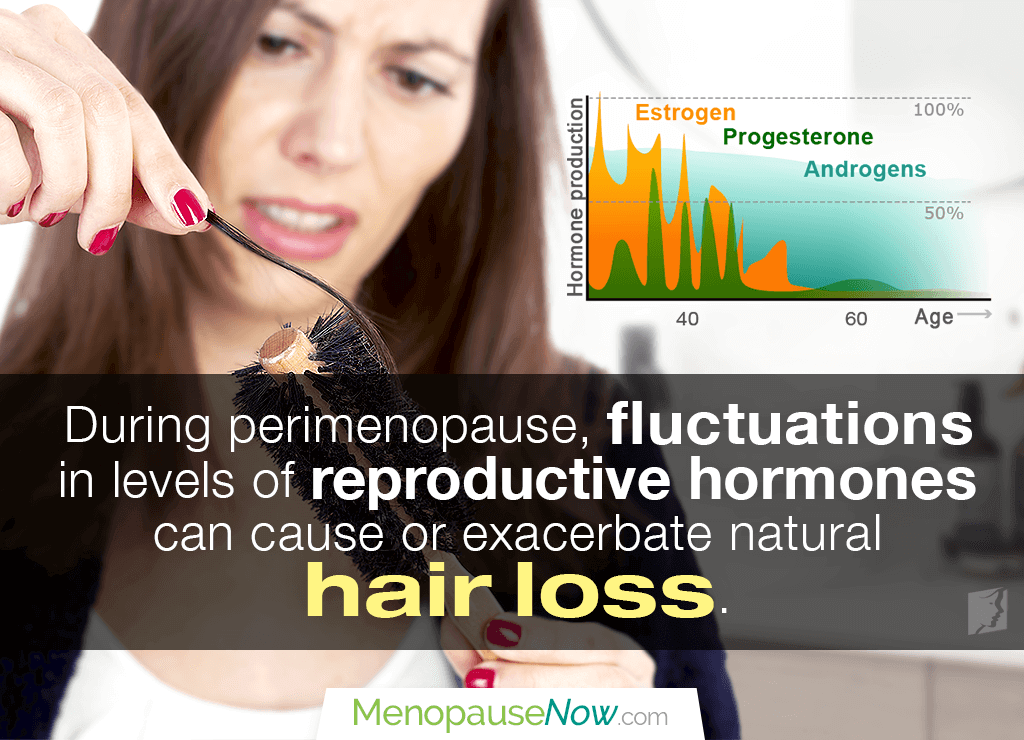Having thick, healthy hair is often associated with what it means to be a woman. So when extensive hair loss occurs, it can be devastating for self-esteem. While hair loss is often a natural part of aging for both men and women, this does not mean menopausal women have to grin and bear it.
Continue reading to learn more about hair loss in women over 40, including its causes, management, and treatment options for healthy locks far into one's twilight years.
Causes of Hair Loss in Women Over 40
During perimenopause, which usually occurs when a woman is in her 40s, fluctuations in levels of reproductive hormones - mainly androgens in proportion to estrogens and progesterone - can cause or exacerbate natural hair loss.
Other factors can also cause hair loss in women as they are passing through menopause, including emotional stress, nutritional deficiencies, PCOS, anemia, or thyroid disorders.
Management Options
If hair loss over 40 is causing issues with confidence and self-image, you may wish to instill some practical management techniques, such as:
- Disguise hair loss. This can be done with wigs or headscarves while you are in the process of treating the hair loss.
- Be gentle with your hair. Avoid drying it vigorously with a towel, pulling it into tight styles, applying harsh chemicals, or using heat to style it.
- Nourish the roots. Apply a hydrating oil, such as argan or coconut, to hydrate the follicles with vitamin E for strength and shininess.
- Maximize your confidence. This will help you regain your spark in life. Consider treating yourself to a flattering new outfit or a spa treatment.
- Practice stress relief techniques. Yoga, deep breathing exercises, tai chi, and meditation are all viable ways to decrease stress levels that may be exacerbating hair loss. Find time to unwind throughout your day.
- Partake in aromatherapy head massages. These are not only an excellent way to relieve stress, but using specific hair-nurturing essential oils, such as lavender, cedarwood, and rosemary, may also help stimulate hair regrowth and improve blood circulation to the head.
- Joint a support group. Less than 45 percent of women go through life with a full head of hair, meaning there are plenty out there suffering from the same as you who could offer you support and encouragement throughout your treatment.
Recommendations
Treating hair loss involves getting to the root cause and tackling that. For many menopausal women, that means treating the hormonal imbalance at fault. Hair loss treatments instill natural and effective methods that are centered around lifestyle changes - many of which are aforementioned - alongside the use of alternative medicine for optimal results. So, click on the previous link to find out what they are and be back on track to enjoying luscious locks in your near future.
Sources
- Dinh, Q.Q. & Sinclair, R. (2007). Female pattern hair loss: Current treatment concepts. Clinical Interventions in Aging, 2(2), 189-199. Retrieved August 14, 2019, from https://www.ncbi.nlm.nih.gov/pmc/articles/PMC2684510/
- MedlinePlus. (2019). Female pattern baldness. Retrieved August 14, 2019, from https://medlineplus.gov/ency/article/001173.htm
- Monfalouti, H. et al. (2010). Therapeutic potential of argan oil: a review. Journal of Pharmacy and Pharmacology, 62(12), 1669-1675. doi: 10.1111/j.2042-7158.2010.01190.x
- National Center for Complementary and Integrative Health. (2016). Lavender. Retrieved August 14, 2019, from https://nccih.nih.gov/health/lavender/ataglance.htm




